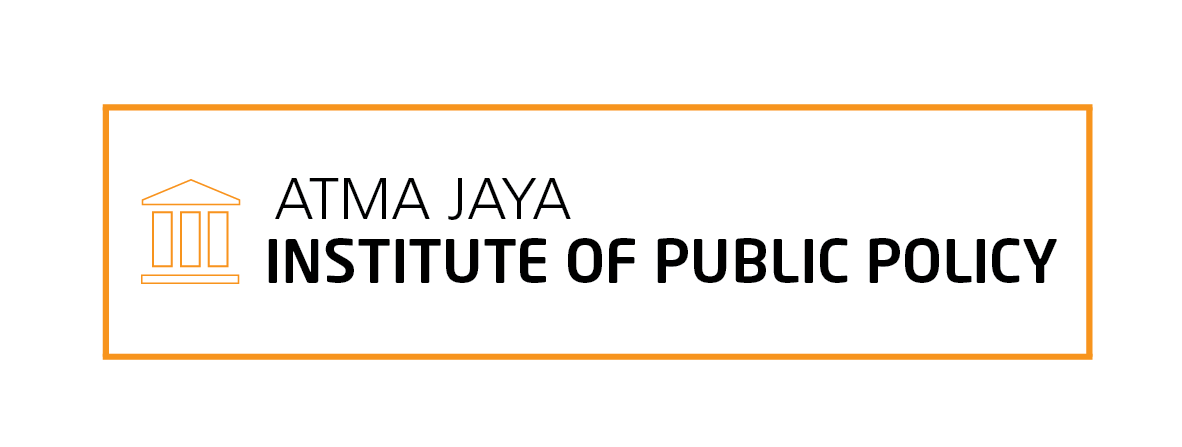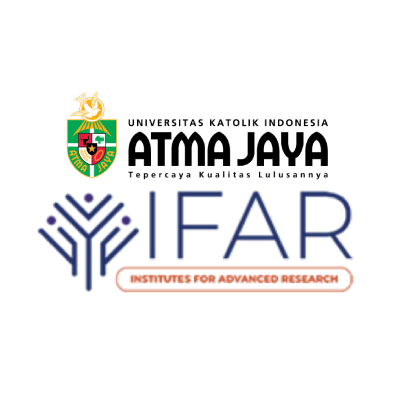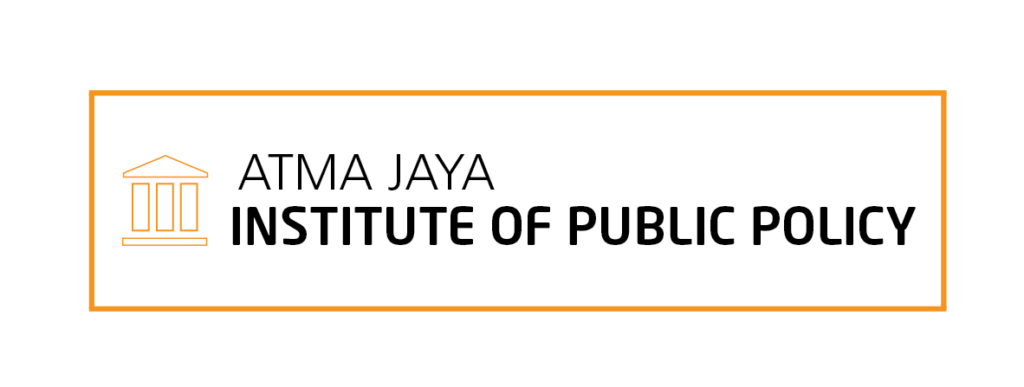Peluncuran Buku: Indonesia Menghadapi Pandemi Kajian Multidisiplin Dampak Covid-19 pada Peradaban

Indonesia Menghadapi Pandemi Kajian Multidisiplin Dampak Covid-19 pada Peradaban Yuval Noah Harari menyebut Pandemi Covid-19 merupakan wabah terbesar dunia dalam seratus tahun terakhir. Badan Kesehatan Dunia (WHO) menyebut wabah ini telah melewati millestones tragic karena telah menewaskan ribuan penduduk dari lebih dari 150 negara di dunia. Kejadian luar biasa yang dialami dunia ini tentu punya implikasi luas. Pertama, terkait dengan isu kemanusiaan. Bagaimanapun risiko kematian adalah masalah kemanusiaan (humanity). Dan karena itu, Covid-19 memiliki dimensi kemanusiaan sangat tinggi. Kedua, tata cara, koordinasi dan tindakan mitigasi yang melibatkan kebijakan publik (public policy). Mengingat pandemi Covid-19 telah menyebar ke hampir semua belahan dunia, kebijakan publik yang diperlukan termasuk koordinasi, konsensus dan kepemimpinan global memerangi pandemi. Buku ini bertujuan untuk merefleksikan salah satu tragedi terbesar dalam masyarakat modern ini agar terjadi pembelajaran. Tujuan lainnya, adalah mengumpulkan para pemikir di lingkungan Unika Atma Jaya untuk secara nyata memberikan sumbangan pemikiran bagi persoalan kemanusiaan dan kebijakan publik. Pasca-pandemi, akan terbentuk tatanan masyarakat baru, mulai arah globalisasi, hingga munculnya standar perilaku berbasis digital. Tanggapan mengenai Buku “Indonesia Menghadapi Pandemi Kajian Multidisiplin Dampak Covid-19 pada Peradaban” “Pandemi Covid-19 merupakan tantangan nyata bagi dunia kesehatan maupun perekonomian, atau dengan kata lain tantangan bagi peradaban. Kebijakan di bidang ekonomi terutama diarahkan untuk memastikan risiko kesehatan bisa dikendalikan, selain mengatasi dampak sosial yang ditimbulkan, seperti peningkatan jumlah pengangguran dan kemiskinan. Kami menyadari sepenuhnya, kebijakan tersebut hanyalah sebagian kecil saja dari upaya yang harus dilakukan oleh semua pihak dalam menghadapi tantangan peradaban ini. Untuk itu, saya menyambut baik upaya perguruan tinggi dalam menyumbangkan pemikiran mengenai pergulatan Indonesia menghadapi pandemi Covid-19 dari berbagai disiplin ilmu. Terlebih, karena penerbitan buku ini juga dikaitkan dengan upaya nyata pemberian beasiswa bagi para mahasiswa/calon mahasiswa yang terkena dampak Covid-19. Perguruan tinggi dikenal sebagai institusi yang kaya wacana, namun juga ingin bertindak nyata. Apresiasi yang sangat tinggi bagi civitas academica Unika Atma Jaya yang tahun ini merayakan Lustrum XII.” (SRI MULYANI INDRAWATI, Menteri Keuangan Republik Indonesia) “Pandemi Covid-19 merupakan tantangan peradaban. Di satu sisi, ini menimbulkan persoalan yang memengaruhi hampir semua bidang kehidupan, namun di sisi lain juga memunculkan peluang dan harapan baru. Salah satunya adalah adopsi teknologi yang akan semakin intensif di masa depan. Bagi dunia pendidikan tinggi, tantangan ini datang dengan tiba-tiba, dan memaksa kita semua berubah dari pendekatan luring menjadi daring. Namun, perubahan tak semata hanya pada cara, tetapi juga materi pengajarannya. Masa pandemi ini juga memicu kebutuhan agenda penelitian baru, selain kurikulum yang harus disesuaikan dengan perubahan. Selain itu, pengabdian masyarakat juga harus ikut beradaptasi cepat sehingga akan senantiasa relevan dan berdaya guna secara maksimal. Melihat hal tersebut, kami menyambut baik upaya Universitas Katolik Indonesia Atma Jaya yang menerbitkan buku mengenai perjuangan Indonesia dalam menghadapi pandemi dari berbagai sudut pandang keilmuan. Semoga penerbitan buku ini menjadi salah satu penanda upaya lebih lanjut dari dunia pendidikan tinggi dalam menciptakan perubahan mendasar, sekaligus juga menginspirasi semangat gotong royong civitas academica di berbagai kampus di Indonesia untuk turut aktif menentukan peradaban di masa depan melalui karya-karya akademik.” (NADIEM ANWAR MAKARIM, Menteri Pendidikan dan Kebudayaan Republik Indonesia) Biodata Penulis Ekonomi, Bisnis dan Teknologi Menyelesaikan program doktor di bidang ekonomi keuangan, perbankan dan ekonomi internasional dari École Normale Supérieure de Lyon dan Master dari Universitas Lille-1 Perancis. Program master dan doktor didanai sepenuhnya oleh Kedutaan Prancis melalui beasiswa Boursier de Gouvernement Français (BGF). Serta menyelesaikan program studi S-1 dari Fakultas Ekonomi dan Bisnis Universitas Gadjah Mada Yogyakarta pada 1997. Rektor Unika Atma Jaya periode 2015-2019 dan 2019-2023. Senior Fellow dan Pendiri Atma Jaya Institute of Public Policy (AJIPP). Menulis kolom rutin analisis ekonomi di Harian KOMPAS. Alamat emil: a.prasetyantoko@atmajaya.ac.id 2. Gregorius Airlangga: Mitigasi Bencana Pandemi COVID19 Menggunakan Teknologi AI Penulis saat ini adalah kandidat doktor di bidang elektro dan teknik komputer dengan peminatan AI dan rekayasa perangkat lunak di National Chung Cheng University, Taiwan. Sebelumnya, menempuh program S1 di bidang sistem informasi STIKOM Yos Sudarso Purwokerto dan S2 di bidang informatika di Universitas Atma Jaya Yogyakarta. Saat ini penulis adalah staf pengajar di Fakultas Teknik, Unika Atma Jaya. 3. Erwin Bramana Karnadi: Peran Data Science dalam Menghadapi Pandemi COVID-19 – Aplikasi di Indonesia Erwin Bramana Karnadi menyelesaikan pendidikan S1 di Monash University, Melbourne, Australia dan pendidikan S2 di The University of Sydney, Sydney, Australia dalam bidang ekonomi dan ekonometrika. Pengalaman kerja termasuk bekerja sebagai Data Analyst di Roy Morgan Research dan sebagai Co-Founder / Data Scientist di P.T. Ekrut Teknologi Pasifik, Jakarta, Indonesia. Saat ini, mengajar ekonometrika, statistika dan matematika ekonomi di Unika Atma Jaya sebagai dosen tetap. Kepala Komputer Lab Fakultas Ekonomi dan Bisnis, dan penulis buku “Panduan EViews untuk Ekonometrika” terbitan Grasindo. Tertarik dengan ekonometrika dan data science. 4. Stevanus Pangestu: Keberlangsungan Bisnis dalam Menghadapi Pandemi Stevanus Pangestu merupakan seorang dosen Fakultas Ekonomi dan Bisnis sejak Maret 2017, sekaligus Kepala Unit Perencanaan dan Pengembangan Strategis Unika Atma Jaya sejak Maret 2020. Bidang penelitian yang digeluti adalah literasi keuangan dan perilaku investor. Beberapa artikelnya telah dipublikasi dalam berbagai jurnal internasional, termasuk yang bereputasi dan memiliki faktor dampak. Ia menyelesaikan pendidikan sarjana dan magister di FEB Unika Atma Jaya. Ia juga aktif menulis di The Conversation Indonesia. (pos-el: pangestu@atmajaya.ac.id) Sosial, Politik dan Hukum Penulis adalah advisor Institute of Public Policy (IPP), Universitas Katolik Atma Jaya. Sebelumnya beliau mengepalai IPP di tahun 2019. Sekarang beliau aktif menjadi peneliti di Departemen Politik dan Perubahan Sosial Centre for Strategic and International Studies (CSIS).Ia memperoleh gelar S1 dari Universitas Indonesia di bidang Ilmu Politik dan gelar S2 di bidang Ilmu Politik dan Ekonomi Politik dari London School of Economics and Political Science, Inggris. Sebagai peneliti, Gani aktif sebagai kolumnis di berbagai media nasional dengan telah menulis banyak artikel terkait politik dan kebijakan publik. Beliau bisa dihubungi lewat edbert.gani@gmail.com. 2. Asmin Fransiska: Dimensi Hak Asasi Manusia atas Respons COVID-19 Asmin Fransiska adalah dosen tetap Fakultas Hukum Universitas Katolik Indonesia Atma Jaya di Jakarta. Hak Asasi Manusia adalah mata kuliah yang diampu bersama dengan hukum narkotika/obat-obatan. Asmin menyelesaikan Sarjana Hukum di Universitas Katolik Parahyangan (Bandung) pada tahun 1998 dan melanjutkan Studi Magister Hukum (LL.M) dalam bidang International Human Rights Law di School of
Peluncuran Indonesia Fintech Society (IFSoc)

Atma Jaya Institute of Public Policy (AJIPP) menjadi salah satu komisi pelaksana (organizing committee) bersama dengan Center for Strategic and International Studies (CSIS) Indonesia FIntech Society (IFSoc). Indonesia FIntech Society (IFSoc), forum diskusi dan analisis kebijakan yang menyoroti perkembangan dunia fintech, hari ini diluncurkan secara resmi, dan disaksikan oleh Menteri Koordinator bidang Perekonomian Republik Indonesia, Airlangga Hartarto, Wakil Menteri Keuangan, Suahasil Nazara, Wakil Ketua Dewan Komisioner Otoritas Jasa Keuangan,Nurhaida dan Deputi Gubernur Bank Indonesia, Sugeng. Indonesia Fintech Society (IFSoc), merupakan suatu forum diskusi kebijakan yang digagas untuk menjadi mitra bagi pembuat kebijakan terkait fintech. Melihat bahwa fintech merupakan area yang terbilang baru namun memiliki peranan yang sangat signifikan bagi ekonomi nasional, inisiator IFSoc memandang perlunya kehadiran suatu forum inklusif yang memainkan peran sebagai mitra bagi pembuat kebijakan dalam mengawal perkembangan pesat dunia fintech Indonesia. Inisiator IFSoc terdiri dari Mirza Adityaswara sebagai Ketua, Rudiantara, Hendri Saparini, Agustinus Prasetyantoko, Yose Rizal Damuri, Karaniya Dharmasaputra, Maryoto, dan Wahyu Dhyatmika Peluncuran ini juga ditandai dengan diskusi publik dengan tema Peran Fintek dalam Pemulihan Ekonomi Nasional, bersama Chaikal Nuryakin (Peneliti LPEM FEB UI), dan Agus Pambagio (Pengamat Kebijakan Publik). Diskusi dipandu oleh Wartawan senior, Andreas Maryoto.
Menanti Gebrakan Bidenomics

Pada 10 November, A. Prasetyantoko menulis tentang Terpilihnya Biden sebagai presiden ke-46 AS dan konstelasi global. Selengkapnya dapat dibaca di https://kompas.id/baca/opini/2020/11/10/menanti-gebrakan-bidenomics/ atau, dapat dilihat dibawah ini.
Mendobrak Kelambanan Birokrasi
Menyikapi polemik hebat soal Rancangan Undang-Undang Cipta Kerja yang sudah disahkan DPR pada 5 Oktober lalu. Ekonom sekaligus Rektor Unika Atma Jaya Dr. A. Prasetyantoko mengatakan ada dua hal yang menjadi fokus perdebatan, yaitu soal proses penyusunan dan substansinya. Dari sisi proses, kritik tertuju pada dinamika yang dianggap tertutup dan terlalu cepat untuk sebuah kerangka perundangan yang sedemikian luas dan kompleks. Sementara, dari sisi substansi, ada beberapa titik perdebatan seperti perlindungan pekerja dan lingkungan yang berkurang, serta kembalinya otoritas kebijakan pada pemerintah pusat (resentralisasi). Selain dua hal tersebut, Dr. A. Prasetyantoko juga mengungkapkan bahwa polemik tersebut menjurus pada urgensinya. “Jika tujuannya meningkatkan investasi, masalah korupsi lebih krusial dibereskan daripada meluncurkan RUU Cipta Kerja. Selain itu, Indonesia merupakan salah satu negara destinasi utama investasi asing selama ini. Kita sama sekali tak kekurangan investasi, mengapa perlu upaya ekstra meningkatkannya? Begitu berbagai gugatan mengalir deras pada urgensi UU Cipta Kerja ini,” jelasnya. Ia menambahkan, mungkin saja perdebatan selanjutnya adalah mengapa perlu perubahan peraturan sebanyak itu sehingga muncul berbagai pasal yang cenderung merugikan berbagai pihak. Ini dilema lain yang juga harus dijawab secara nyata. Sebagaimana dijelaskan dalam Pasal 1 dan 3, tujuan RUU Cipta Kerja adalah menciptakan lapangan kerja (pertama-tama) melalui pemberdayaan koperasi dan unit usaha mikro, kecil, dan menengah. Tentu ada banyak pasal terkait investasi strategis yang nilainya besar dan melibatkan investor (asing) besar pula. Meski begitu, anggapan RUU Cipta Kerja hanya berorientasi mendatangkan investasi (asing) berskala besar tak sepenuhnya valid. Relaksasi dan transformasi Harus diakui, semangat UU Cipta Kerja adalah melakukan relaksasi di berbagai bidang secara komprehensif dan cepat. Keyakinan umum di mana-mana tentang cara paling cepat meningkatkan produktivitas dan daya saing adalah melalui relaksasi atau liberalisasi. Dengan relaksasi diyakini akan menarik lebih banyak investasi sehingga lebih banyak kesempatan kerja tercipta. Para pendukung RUU Cipta Kerja menyakini, jika proteksi pada pekerja menurun, proteksi terhadap pekerjaan itu meningkat. Tentu saja dari kaca mata pekerja, argumen ini ganjil. Sebab, mereka yang harus menanggung efek negatifnya. Bisa dipahami jika para pekerja tak rela kualitas hidupnya menurun, meskipun demi kesempatan kerja yang lebih luas (bagi orang lain) di masa depan. Oleh karena itu, perlu kompromi atas dilema seperti ini. Namun, tampaknya ada banyak dilema lain di berbagai aspek dalam aturan seluas ini. Dr. A. Prasetyantoko menjelaskan ada dua cara untuk keluar dari aneka dilema ini. Pertama, perlu pemetaan komprehensif dengan mengundang partisipasi berbagai pihak guna merumuskan aturan turunan yang optimal. Kedua, perlu akselerasi kerja birokrasi agar lebih responsif, baik dalam menampung masukan maupun merancang kebijakan lanjutannya. “Kalaupun RUU Cipta Kerja ini bisa begitu saja disahkan, tanpa penolakan dan proses hukum di Mahkamah Konstitusi, tak serta-merta persoalannya selesai. Persoalannya justru baru dimulai karena kuncinya ada di fase implementasi. Berbagai upaya relaksasi hanya akan relevan jika peta jalan transformasinya dijabarkan,” kata Rektor Unika Atma Jaya tersebut. Lebih lanjut, Dr. A. Prasetyantoko menjelaskan soal pengurusan izin investasi satu pintu melalui perizinan terintegrasi secara elektronik (Online Single Submission/OSS), misalnya. Meskipun sudah diatur dalam Peraturan Pemerintah No 24/2018, dalam implementasinya masih banyak kendala sehingga hasilnya belum maksimal. “Mekanisme yang diharapkan meningkatkan minat berinvestasi di Indonesia ini tak serta-merta membuahkan hasil. Tentu saja, investasi tak sekadar dipengaruhi kemudahan administrasif, tetapi juga faktor fundamental lainnya. Namun, fakta ini perlu menjadi pelajaran, agar omnibus law tak bernasib serupa; relaksasi tak diikuti transformasi,” katanya. Terlepas masih banyaknya pasal yang konsensusnya belum tercapai, ada (lebih) banyak pasal lain yang valid segera ditindaklanjuti. Sebagai contoh, relaksasi pendirian koperasi primer yang hanya memerlukan 9 orang dari ketentuan sebelumya 20 orang. Juga relaksasi perizinan pendirian Perseroan Terbatas (PT) serta Usaha Mikro Kecil (UMK) yang praktis tak memerlukan izin, cukup dengan pemberitahuan. RUU Cipta Kerja cukup rinci mengatur penguatan UMK, mulai dari penyatuan data, insentif fiskal hingga kewajiban pendampingan oleh pemerintah dan dunia usaha. Dr. A. Prasetyantoko mengatakan, berbagai pasal peningkatan kapasitas dan pemberdayaan UMK merupakan salah satu bagian pokok dari UU Cipta Kerja dalam rangka melakukan transformasi ekonomi. Oleh karena itu, kalaupun masih banyak pasal yang dianggap kontroversial, sepertinya tak perlu membatalkan seluruh konstruksi hukumnya. Meski upaya hukum masih terbuka lebar, diperlukan konsensus agar transformasi ekonomi melalui peningkatan produktivitas dan daya saing tetap bisa diakselerasi. Di lain hal, Dr. A. Prasetyantoko juga mengatakan bawa perlu konsistensi agar RUU Cipta Kerja tak bias kepentingan investor besar. “Diperlukan langkah nyata mewujudkan transformasi ekonomi domestik melalui pemberdayaan UKM. Relaksasi harus ditindaklanjuti dengan upaya transformasi yang terarah. Jika tidak, hanya akan menjadi liberalisasi yang menguntungkan pelaku besar saja. Jika hal itu terjadi, keberatan utama berbagai pihak selama ini menemukan kebenarannya,” ungkapnya. Ia berharap agar jangan sampai kinerja birokrasi justru menggerogoti legitimasi kerangka perundangan yang secara normatif sulit dibantah lebih banyak pihak di negeri ini.
Turunnya Kualitas Demokrasi Indonesia: Perspektif Politik Lokal

Analisis beberapa ilmuwan politik yang mempelajari dinamika politik di Indonesia menunjukkan bahwa kualitas demokrasi Indonesia semakin rendah dalam empat tahun terakhir. Meningkatnya konservatisme, serta penerapan beberapa peraturan hukum yang bersifat mengekang kebebasan sipil yang disertai reaksi keras pemerintah terhadap gerakan-gerakan masyarakat sipil, dituding sebagai penyebab menurunnya kualitas demokrasi di Indonesia. Akan tetapi, pendapat tersebut terlalu fokus pada dinamika politik di Jakarta. Lebih lanjut, mereka seakan abai terhadap dinamika politik di level subnasional yang juga memainkan peran penting dalam menurunnya kualitas demokrasi di Indonesia. Institute of Public Policy Unika Atma Jaya akan mengadakan Brownbag Discussion dengan, Yoes C. Kenawas (Kandidat Doktor Ilmu Politik, Northwestern University) sebagai Pembicara yang akan memaparkan beberapa temuan sementara dari penelitian lapangannya yang menunjukkan bahwa menurunnya kualitas demokrasi di Indonesia tidak terlepas dari dinamika politik di tingkat lokal. Pembicara dan Pembahas: 1. Yoes Chandra Kenawas (IPP Research Fellow, Kandidat Ph.D, Northwestern University, U.S.A.) 2. Pembahas: Dr. Kurniawati Hastuti Dewi S.IP, MA. (Peneliti Senior LIPI) 3. Moderator: Edbert Gani Suryahudaya (Peneliti Politik) Lokasi: Gedung K2, Ruang K202 Kampus Semanggi , Unika Atma Jaya Tanggal: Senin, 10 Februari 2019 Waktu : 14.00-16.00WIB http://bit.ly/BrownbagPolitikLokal
Pandemi Covid-19 dan Siklus Ekonomi

Pada 17 Maret, A. Prasetyantoko menulis tentang Pandemi Covid-19 yang sedang terjadi dan dampaknya terhadap siklus ekonomi. Selengkapnya dapat dibaca di https://kompas.id/baca/opini/2020/03/17/pandemi-dan-siklus-ekonomi/ atau, dapat dilihat dibawah ini.
Book Review, Power and Knowledge in Southeast Asia: State and Scholars in Indonesia and The Philippines

This book analyzes comparatively the dynamics of the state-scholar relations during the Marcos and Suharto years in the Philippines and Indonesia as evident in two official history-writing projects: Marcos‘s Tadhana project and Suharto regime‘s Sejarah Nasional Indonesia (SNI). This book argues that the participation of scholars in these projects merely formalizes and renders explicit the transactional encounters happening on daily basis between knowledge of any ideological disposition, type or level of accuracy, on the one hand, and their respective consumers, on the other. Organizers: Atma Jaya Institute of Public Policy, AIFIS (American Institute for Indonesian Studies) dan CSEASI (Center for Southeast Asian Studies-Indonesia) Event details: 1. Rommel A. Curaming, Ph.D (Universiti Brunei Darussalam) 2. Discussant: Yosef Djakababa Ph.D (AIFIS Country Representative 3. Moderator: Yoes Chandra Kenawas (IPP Research Fellow, Ph.D Candidate, Northwestern University, U.S.A.) Location: Yustinus Building 14th fl -1408 Semanggi Campus, Atma Jaya University Date : Monday, 9 December 2019 Time : 16.00-18.00 WIB Online registration: tiny.cc/powerandknowledge
Political Corruption & Sophistication, Voting & Its Relation w/ Gov. Policy ft. IPP Unika Atma Jaya

13/11/2019 A few weeks ago, a polemic rose in the society regarding the new Law of KPK. The new Law contains a controversial article regarding the formation of a new board of trustees to oversee the KPK‘s works, including monitoring the tapping mechanism. Civil societies rejected this article because it will jeopardize the KPK impartiality in carrying out its duties. Corruption Indonesia is indeed a perennial and complicated problem for the country. What are the causes of corruption? Why does corruption persist? How can corruption affect public policies? Atma Jaya Institute of Public Policy Brownbag Discussion aims to answer these questions. In the upcoming Brownbag Discussion, Professor Mathew Winters of the University of Illinois at Urbana-Champaign (IL, USA) will present his research on corruption. He will provide some insights into the effect of corruption on a country‘s public policies. Event details: 1. Matthew Winters – Associate Professor of Politics, the Department of Political Science, the University of Illinois at Urbana-Champaign 2. Indro Adinugroho – Research fellow at IPP Atma Jaya (Moderator) Location: Gedung Yustinus Lantai 14-1408 Semanggi Campus, Atma Jaya University Date : Wednesday, 27 November 2019 Time : 13.00-15.00 WIB Online registration: http://bit.ly/BrownbagMatthewWinters
Ruang Tengah Edisi 3: Kebebasan Berpendapat: Apakah Tingkat Kebebasan Berpendapat di Indonesia Sedang Terancam

31/10/2019 Jakarta – 30 Oktober 2019. Bekerjasama dengan Think Policy Society dan Asumsi, IPP Atma Jaya mengangkat isu tentang Kebebasan Berpendapat. Hal ini dilatarbelakangi oleh kejadian dua bulan menjelang berakhirnya periode kepemimpinan Jokowi-Jusuf Kalla, masyarakat dibuat gaduh dengan adanya RUU yang tiba-tiba direncanakan akan disahkan para anggota legislatif bekerja sama dengan lembaga eksekutif. Ada beberapa RUU yang menimbulkan kontroversi, seperti: RUU KPK, RKUHP, RUU Ketenagakerjaan, RUU Pertahanan, RUU Ketahanan dan Keamanan Siber, dan lainnya. Malahan, RUU KPK terlanjur lolos disahkan dan sudah mulai berlaku sejak 17 Oktober 2019. Kembali pada September 2019, masyarakat akhirnya turun ke jalan dan bertamu ke Gedung DPR/MPR di Senayan, Jakarta. Salah satu catatan penting terjadi ketika mahasiswa turun ke jalan pada 24 September 2019. Kembali pada September 2019, masyarakat akhirnya turun ke jalan dan bertamu ke Gedung DPR/MPR di Senayan, Jakarta. Salah satu catatan penting terjadi ketika mahasiswa turun ke jalan pada 24 September 2019. Mereka tidak sendirian sebab ada beberapa elemen masyarakat yang turut turun ke jalan bersama. Misalnya, para buruh, aktivis HAM, dan lapisan masyarakat lainnya. Aksi mahasiswa juga terjadi di beberapa daerah lain di luar Jakarta, seperti di Yogyakarta, Medan, Bandung, dan daerah-daerah lain. Rekaman acara ini nantinya akan dapat diakses di kanal youtube Asumsi, dalam episode Pangeran Mingguan Edisi November.
Pemanfaatan Data untuk Merumuskan Kebijakan Publik di Bidang Kesehatan

7/10/2019 Jakarta – 18 September 2019. Atma Jaya Institute of Public Policy menyelenggarakan Brownbag Discussion: Special Edition, membahas mengenai penggunaan data dalam penyusunan kebijakan khususnya di bidang kesehatan. Diskusi tersebut dipandu oleh Yunisa Astiarani dari Departemen Ilmu Kesehatan Masyarakat Unika Atma Jaya, dan menghadirkan tiga pembicara yaitu: Ketiga pembicara sepakat bahwa data sangat penting dalam perumusan kebijakan. Ibu Nafsiah Mboi banyak memaparkan berbagai contoh data kesehatan di Indonesia, “Ada peningkatan angka harapan hidup secara nasional di Indonesia, meskipun masih di bawah angka global. Tetapi ketimpangan antar daerah jelas terjadi. Kemudian salah satu data menarik yang menjadi dasar kebijakan, dari tahun 2013 ke 2018, ada peningkatan perokok anak-anak dari 7% menjadi 9%, sedangkan perokok perempuan meningkat tiga kali lipat.” Beliau kemudian melempar, “Dengan data ini, jika Anda sebagai pemangku kebijakan, apa yang akan Anda lakukan? Kebijakan apa yang akan Anda buat?” Ibu Nafsiah kemudian melanjutkan, “Data tidak boleh hanya untuk policy, tetapi juga dipakai dalam proses dari policy to action. Penting sekali action itu kemudian dievaluasi, dimonitor, dan penelitian. Hasilnya kemudian berupa data yang dapat dianalisis untuk dibuat policy lagi, menjadi lingkaran yang terus berjalan.” Pernyataan tersebut sejalan dengan paparan Raj, “Hanya data sendiri tidak akan banyak gunannya. Dalam beberapa kesempatan, kita tidak memiliki informasi yang dibutuhkan untuk membuat keputusan. Di sinilah kita menggunakan ekspertise klinis masing-masing. Kedokteran berbasis bukti zaman sekarang tidak melulu berdasar pada bukti, tetapi dari tiga poin yang saling berkaitan satu sama lain yaitu bukti, ekspertise klinis, dan preferensi pasien.” Direktur Atma Jaya Institute of Public Policy, Edbert Gani setuju dengan pendapat para pembicara, “Pemanfaatan data dalam kebijakan kesehatan sangat penting. Untuk itu tata kelola data yang baik adalah awal yang harus dilakukan.” Meskipun demikian, Beliau juga tidak memungkiri bahwa ada faktor-faktor lain yang memengaruhi perumusan kebijakan: “Memang dalam membaca data kesehatan juga akan dipengaruhi oleh pertimbangan politik, ekonomi dan sosial. Tapi pertimbangan tersebut memerlukan data yang kongkret agar fokus keberpihakan bisa dilakukan.” Selain membicarakan mengenai data, isi dari kebijakan itu sendiri juga penting, “Tetapi dalam merumuskan kebijakan, kita juga harus ingat, kesehatan tidak hanya terdiri dari masalah kesehatan, tetapi juga berhubungan dengan produktivitas,” ujar Ibu Nafsiah Mboi.



